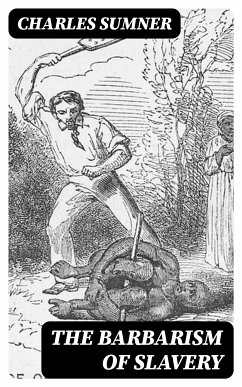In "The Barbarism of Slavery," Charles Sumner delivers a potent critique of slavery, intertwining moral philosophy with impassioned rhetoric to illuminate the ethical failures of a society that permits such an institution. Through a meticulous examination of historical, legal, and cultural frameworks, Sumner constructs a compelling argument against the justifications for slavery, revealing its dehumanizing impacts not only on the enslaved but also on the moral fabric of the nation. His writing style is both articulate and combative, combining the cadence of a lecturer with the fervor of a social reformer, reflecting the antebellum context of emerging abolitionist thought and political strife in the United States. Charles Sumner, a prominent senator and a leading abolitionist, was deeply influenced by the moral imperatives of his time and the intellectual currents that shaped his views on civil rights and justice. His rigorous legal training at Harvard and his exposure to European philosophical discourse instilled in him a profound conviction against oppression. Personal experiences, including his opposition to the Kansas-Nebraska Act and the violent conflicts surrounding slavery, further fueled his advocacy for abolition, culminating in this landmark work. "The Barbarism of Slavery" is an essential read for anyone seeking to understand the moral dilemmas surrounding slavery and its enduring consequences. It offers critical insights into the struggle for civil rights and the philosophical underpinnings of justice, making it relevant today as society grapples with issues of equality and human dignity. Sumner's eloquent prose and unwavering commitment to truth provide not only a historical account but also a clarion call for empathy and reform.
Dieser Download kann aus rechtlichen Gründen nur mit Rechnungsadresse in A, B, BG, CY, CZ, D, DK, EW, E, FIN, F, GR, H, IRL, I, LT, L, LR, M, NL, PL, P, R, S, SLO, SK ausgeliefert werden.









